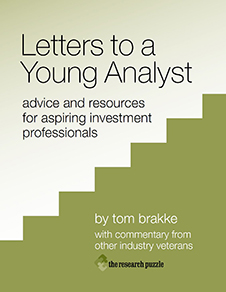
- Monday, August 3rd, 2009
- in lombard street
-
It seems like I read all of the time and yet the books and other materials keep piling up, partially because the electronic flow has me engaged, sometimes productively, many times not.the research puzzle | Here are some postings I did on the use and misuse of tools. So, I thought I’d attack the problem by integrating bits of a book into my cyberstream via DailyLit, a service that will send books to you one installment at a time.DailyLit | In a nice bit of circularity, the service is really the same as the serialization in newspapers in days gone by.
The book I chose to have arrive each day (precisely as the noon whistle blew) was Lombard Street: A Description of the Money Market, by Walter Bagehot, a seminal work from 1873. While the mechanics of banking take up much of the work and are still valid in many respects, the inescapable conclusion is that the thing that has changed least since its writing is human nature. The failure of Overend, Gurney and Co. was much like those of our time, with protagonists that owned “great estates” and earned “immense income.” They lost it all, “And these losses were made in a manner so reckless and so foolish, that one would think a child who had lent money in the City of London would have lent it better.”
The pattern seems eternal:
The first taste is for high interest, but that taste soon becomes secondary. There is a second appetite for large gains to be made by selling the principal which is to yield the interest.
So long as such sales can be effected the mania continues; when it ceases to be possible to effect them, ruin begins.But before that ruin, there is the excitement:
Such a period naturally excites the sanguine and the ardent; they fancy that the prosperity they see will last always, that it is only the beginning of a greater prosperity. They altogether over-estimate the demand for the article they deal in, or the work they do. They all in their degree — and the ablest and the cleverest the most — work much more than they should, and trade far above their means.
It is when the bankers finance the party to an unwise extent — and party hardy themselves — that things get really ugly. Bagehot stressed the need for real managers who understand risk.
As private banking became bigger and more complex in Bagehot’s day, the London banker, in archetype “a certain union of pecuniary sagacity and educated refinement,” had moved away from taking on personal liability to a more corporate approach. His clients became more removed and their trust in him came more from reputation than knowledge, with the reputation being for that of the firm rather than the individual. It all became too distant: “Probably not one-thousandth part of the creditors on security of Overend, Gurney and Co., had ever expected to have to rely on that security, or had ever given much real attention to it.”
On the macro level, Bagehot wrote of what the Bank of England should do, as the “lender of last resort” (the need for which we apparently will never get away from), and speculated on how the oversight of the banking system could be better, while realizing:
A system of credit which has slowly grown up as years went on, which has suited itself to the course of business, which has forced itself on the habits of men, will not be altered because theorists disapprove of it, or because books are written against it.
Time and again, we stress the system near the point of failure, then tweak it in response. There must be a better way, although I’ll leave that to others to profess. It seems impossible to do the big things and the politicians and regulators and monetary authorities don’t have the nerve to take the punchbowl away when the party really gets going.
Maybe they should hand out a few old books instead.
